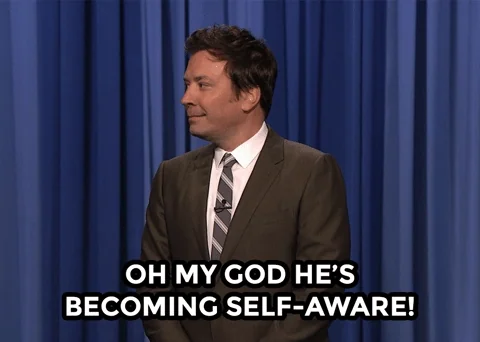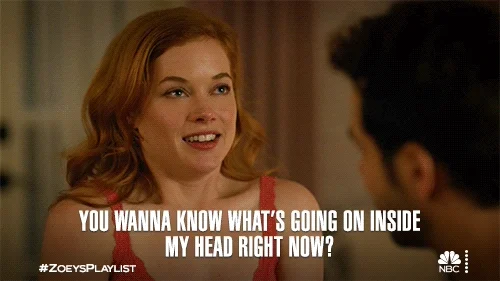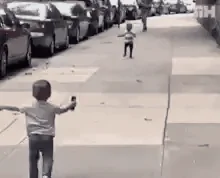Does your classroom ever feel like this?

Do your students' words and actions hurt each other? Integrating SEL (social-emotional learning) into your classroom can lead to:
improved academic performance
reduced stress and anxiety in students
a more positive learning environment
Defining Social-Emotional Learning

Social-emotional learning involves teaching students to:
recognize and manage their emotions
develop empathy and establish positive relationships
make responsible decisions
There are 5 core competencies of social-emotional learning:
self-awareness
self-management
social awareness
relationship skills
responsible decision-making
Social-Emotional Learning Core Competency 1: Self-Awareness

Self-awareness means recognizing one's emotions and their influence on behavior.
 Common Struggles
Common Struggles
Students may have trouble understanding or expressing their emotions, which can lead to frustration or outbursts.
 Why Self-Awareness Matters
Why Self-Awareness Matters
Recognizing and naming emotions helps students understand themselves, communicate their feelings, and manage stress.
 Activities to Build Self-Awareness Skills
Activities to Build Self-Awareness Skills
Elementary School: Feelings Chart 🖍️
Use a chart with different emotions and have students point to or write how they feel at the beginning and end of the day.
Middle School: Self-Reflection Journals 📝
Have students reflect on their strengths, challenges, and personal goals at regular intervals.
High School: Personality Quiz 📚
Take a simple personality quiz (e.g., Myers-Briggs) and discuss the results with students, helping them understand their personal traits.
Quiz: Lily's Frustration
Lily feels upset after a disagreement with her friend at recess. You notice she seems frustrated but when you ask her about it, she seems unsure why she feels that way. What should you encourage her to do?
A. Distract herself by playing games with other friends.
B. Try to understand what happened and how she’s feeling about it.
C. Tell her friend immediately that she’s upset without thinking about it.
Quiz
What should you encourage her to do?
Social-Emotional Learning Core Competency 2: Self-Management

Self-management means regulating "emotions, thoughts, and behaviors effectively."
 Common Struggles
Common Struggles
Students may have trouble managing their emotions or controlling impulses, which can make it hard to stay focused or handle frustration.
 Why Self-Management Matters
Why Self-Management Matters
Developing self-management skills helps students stay focused, make thoughtful choices, and handle challenges more effectively.
 Activities to Build Self-Management Skills
Activities to Build Self-Management Skills
Elementary School: Calm-Down Corner 🖍️
Set up a designated space in the classroom where students can go to calm themselves down when they feel overwhelmed or upset.
Middle School: Time Management Games 📝
Teach time management skills using fun games like setting timers for tasks and having students work in groups to complete challenges.
High School: Daily Planning and Organization 📚
Encourage students to use planners or digital apps to organize their tasks, set priorities, and manage their time.
Social-Emotional Learning Core Competency 3: Social Awareness

Social awareness means understanding and empathizing with others' perspectives.
 Common Struggles
Common Struggles
Students may have trouble understanding how others feel or seeing things from different perspectives. They might not realize how their actions affect those around them.
 Why Social Awareness Matters
Why Social Awareness Matters
Understanding emotions and social cues helps students build empathy, improve relationships, and create a more supportive environment.
 Activities to Build Social Awareness Skills
Activities to Build Social Awareness Skills
Elementary School: Compliment Chain 🖍️
Students give compliments to one another in a circle, promoting empathy and understanding of others' feelings.
Middle School: Role-Playing 📝
Have students role-play different social situations (e.g., conflict resolution, helping a friend) to practice empathy and perspective-taking.
High School: Conflict Resolution Workshops 📚
Lead group discussions on resolving conflicts and understanding others' perspectives in social or group settings.
Social-Emotional Learning Core Competency 4: Relationship Skills

Relationship skills are needed for building and maintaining healthy relationships.
 Common Struggles
Common Struggles
Students may find it hard to get along with others, especially when disagreements happen. They might struggle with sharing, working together, or expressing themselves clearly.
 Why Relationship Skills Matter
Why Relationship Skills Matter
Developing strong relationship skills helps students make friends, solve problems, and communicate effectively in both school and life.
 Activities to Build Relationship Skills
Activities to Build Relationship Skills
Elementary School: Team-Building Games 🖍️
Activities like building something with blocks in small groups or working together on a puzzle can foster teamwork and cooperation.
Middle School: Conflict Resolution Scenarios 📝
Use role-play to practice resolving common peer conflicts, like disagreements over group work or misunderstandings.
High School: Peer Mediation 📚
Train students to be peer mediators, where they help resolve conflicts between classmates in a neutral and fair way.
Quiz: Jake and Maya's Disagreement
Jake and Maya are working on a project together, but they can’t agree on the approach. Jake wants to finish it quickly, while Maya wants to be more detailed. What would you help Jake decide to do?
A. Calmly share why he prefers to finish quickly and listen to her view.
B. Tell Maya they need to work faster.
C. Agree with Maya’s approach to avoid a conflict.
Quiz
What would you help Jake decide to do?
Social-Emotional Learning Core Competency 5: Responsible Decision-Making

Responsible decision-making means making ethical, constructive choices.
 Common Struggles
Common Struggles
Students may struggle to think ahead before making decisions, sometimes acting on impulse or following peer pressure without considering the outcome.
 Why Responsible Decision-Making Matters
Why Responsible Decision-Making Matters
Learning to make thoughtful choices helps students avoid mistakes, build responsibility, and develop problem-solving skills they’ll use throughout life.
 Activities to Build Responsible Decision-Making Skills
Activities to Build Responsible Decision-Making Skills
Elementary School: Choice Board 🖍️
Create a board with different positive choices for students to pick from based on different scenarios (e.g., “What should I do if I see someone being bullied?”).
Middle School: Decision-Making Scenarios 📝
Present different scenarios and have students discuss in groups the pros and cons of different choices and the potential outcomes.
High School: Case Studies 📚
Provide real-world examples (e.g., ethical dilemmas) and ask students to analyze the decisions involved and the impact they had.
Take Action

Start incorporating social-emotional learning activities into your classroom today!
Your feedback matters to us.
This Byte helped me better understand the topic.


